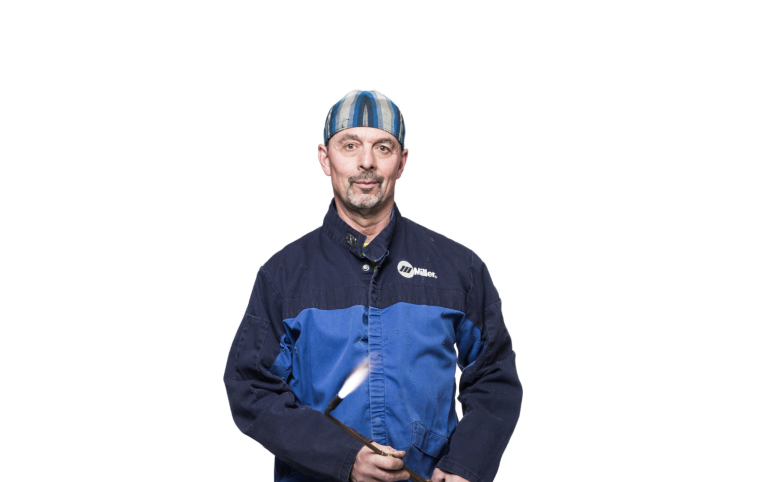What’s your typical day like?
A lot of times welding will play a very small role in what I do. It’s all the other stuff I have to do to get ready to weld: You’ve got to be able to figure out square feet, you’ve got to be able to do a lot of different types of math. It may sound very simple, but reading a tape measure—you wouldn’t believe how many people struggle with that.
What do you love about welding?
It’s one of the finest crafts on Earth. It’s a specific motor skill that requires tremendous concentration between your eyes and your body, your hands, your mind. It’s something that takes years to be really good at.
What’s a tough job you did recently?
We replaced a bunch of steam lines in the ground by Alumni Gym. We replaced about 70 or 80 feet of pipe. When I had to weld it together down in the trench, I had to put a mirror underneath the pipe—then stay above it, look in the mirror, and weld backward because I couldn’t get underneath.
How old is the steam line?
I would say that some of it could be 70 or 80 years old. Some of that system is fairly antiquated, and we end up running into a lot of repairs where we have to fix pipes that are leaking. One of my toughest challenges here is maintaining that system.
How do you prepare for difficult jobs?
I’m the kind of guy who just looks at the job and goes, “Yeah, when we walk away from this, I’m going to win.” I do whatever I have to do for as long as I have to do it. And then, when it’s over, I sigh a big breath of relief and go, “Okay, where’s the next one?”
Why did you decide to become a welding teacher?
Ten years ago, if you’d asked me if I was ever going to teach it, I would have said, “What are you—crazy?” And now I just absolutely love it. When you get to be my age and you have a really good skill set, it seems silly that I should take that to my grave without being able to share it with as many people as I possibly can.
What’s the story behind your cool helmet?
It’s actually a tribute to veterans. My old man was in World War II.




